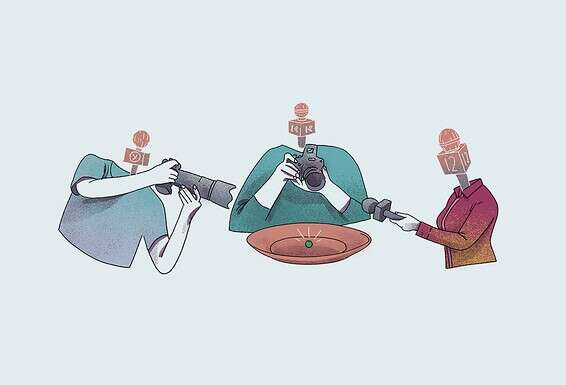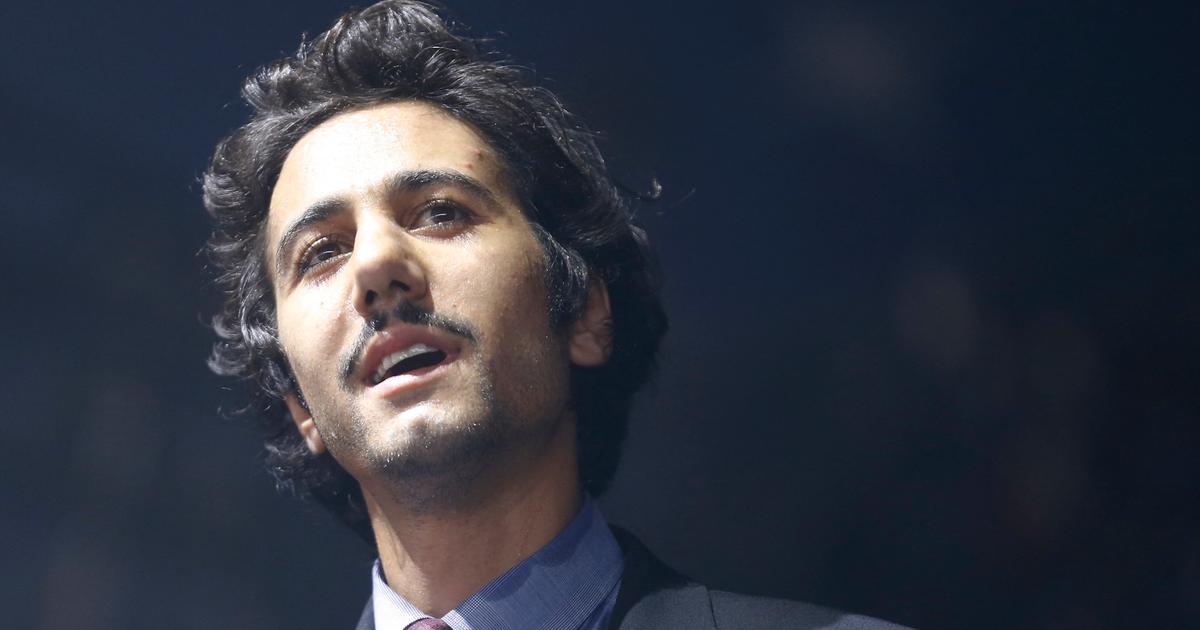A fork that falls in Tel Aviv will make noise across the country and get an item in the top news sites • That's how it is when the Barangay detachment touches almost every area of our lives, leading to public representation that is far from the majority
This week, four news sites - Ynet, Mako, Walla and Haaretz - reported the closure of the Hanoi restaurant. One even expressed concern that the brasserie would also close. I was very saddened. Also that the failure of a business is an unfortunate matter, and also that it was the first time I heard about Hanoi. And what kind of Tel Aviv wear, if I have no idea what the hottest places to eat?
Illustration: Shimon Engel
Restaurant is a challenging profession even on a regular basis. According to restaurant association data, about a third of restaurants fail to last a year, and only 20 percent will survive more than five years. 3,000 restaurants close every year. Only a few of them get the headlines. What is the uniqueness of "Hanoi"?
Well, my guess is that she was well known and loved by journalists from the sites mentioned above, in their world they mattered and so naturally attributed news value to its closure.
So it is, not.
The importance of news is largely determined not by their impact on all citizens, or by the feelings that they may elicit in a large public, but by the personal impressions of editors and reporters on the nature of the issues that accumulate on their desks, and especially on a common human error: the trusting belief that matters to me, from Probably important to others too. The news of the restaurant's closure testified to only one thing - those who wrote and published it had no idea what was important to non-Tel Aviv first class. I would not brag here if I did not feel it was my sacred duty, and there are things that must be said: I am a third generation Tel Aviv on both father and mother's side, and if I have not heard of any restaurant - it should not reach the news unless murdered or differentiated In the kitchen is a three-winged goose.
There is no harm in publishing news of closing a restaurant that is likely to be loved by such a large public of journalists. But it is precisely this innocent news that betrays how the media view themselves: loyal ambassadors of viewers and readers, or at least of a large public that shares their culinary preferences with them as well as their other interests and their point of view on more important things. Obviously, I mean politics, and it is clear to me that the sites that have found it appropriate to engage in the closure of "Hanoi" tend, how to say gently, to the left, and without delicacy: against the prime minister.
Most Israeli media outlets represent a public that is smaller than all viewers, who in Hebrew are called "minority." This nickname does not suggest that this minority is unjust, either unsuccessful and elected, or unworthy to serve as the top filtering committee for issues to be brought to the public's attention. They may well be all these, but - before going on to explain something to someone, or present a fact, or interpretation - you might want to know who. Hint: He is not necessarily Tel Aviv who knows all the restaurants on Lilienblum Street. Another hint: he's not as anti-Bibby as they are.
And that public who is unfamiliar with the Tel Aviv culinary scene did not necessarily want political change in 2015, despite the daring spirit that the major media gave to that "change" in that year's election, which ended with Benjamin Netanyahu's victory. And he may not be impressed with Ehud Olmert as a commentator on Netanyahu's legal affairs in particular or corruption at all. The same public may be appalled by the fact that transcripts from Netanyahu's interrogations have been leaked to court correspondents, much more than they are appalled by the transcripts themselves.
This large public feels uncomfortable when the studio and commentators talk about the Prime Minister with scorn. As many have pointed out to him, it is natural to feel reservations when presenting Netanyahu's supporters as exotic and rare animals, the subject of anthropological investigations. Many do not think that criticism of the police, the prosecutor's office or the court is an attack on the gatekeepers, even if the title declares otherwise, and even if all the commentators in the studio are loudly shouting "Shout! attack! corruption!"
According to the latest survey by the Israel Democracy Institute (this is a political institution, so it is worth taking its conclusions in limited terms) the public's confidence in the media is 36 percent. This is an unimpressive figure, and it indicates that anyone who believes in communication is a minority.
A large minority - definitely. A respectable minority - on the contrary. But a minority. And when a minority tries to convince a majority - come on for fun, but at least know that it is a minority and will not try to speak to the majority as if the majority is foolish. I would suggest not to show hostility to the majority, its preferences, tastes and voting considerations.
I will not argue that the majority is intelligent nor that the majority is right by being a majority. But let's face it: the minority is not necessarily just being a minority either, nor is it just being a journalist or a commentator. These, too, are not exempt from the effort to persuade their fellows, and in effect, I effectively doubt persuasion practices that are based on conversations held in a homogeneous group whose members know one Tel Aviv restaurant more than they know the people they are trying to sell news information to.
In my youth, I used to vote for "run" - one of Meretz's previous incarnations. Every election I was struck with amazement when it repeatedly rolled out a single-digit number of seats, even though everyone I knew voted for it. Of course, for a moment, I didn't realize I was a minority. I preferred to believe that this was a temporary glitch, which would be successfully fixed in the next election. Somehow it didn't help.
There is nothing wrong with belonging to a minority group. But there is more than a hint of narcissism in the thought that everything outside your personal reach is a mistake. You don't have to like the majority. But for starters, you shouldn't underestimate it simply because it doesn't eat at restaurants you like, or points to people you hate.
For further opinions of Irit Linor










/cloudfront-eu-central-1.images.arcpublishing.com/prisa/KMEYMJKESBAZBE4MRBAM4TGHIQ.jpg)



